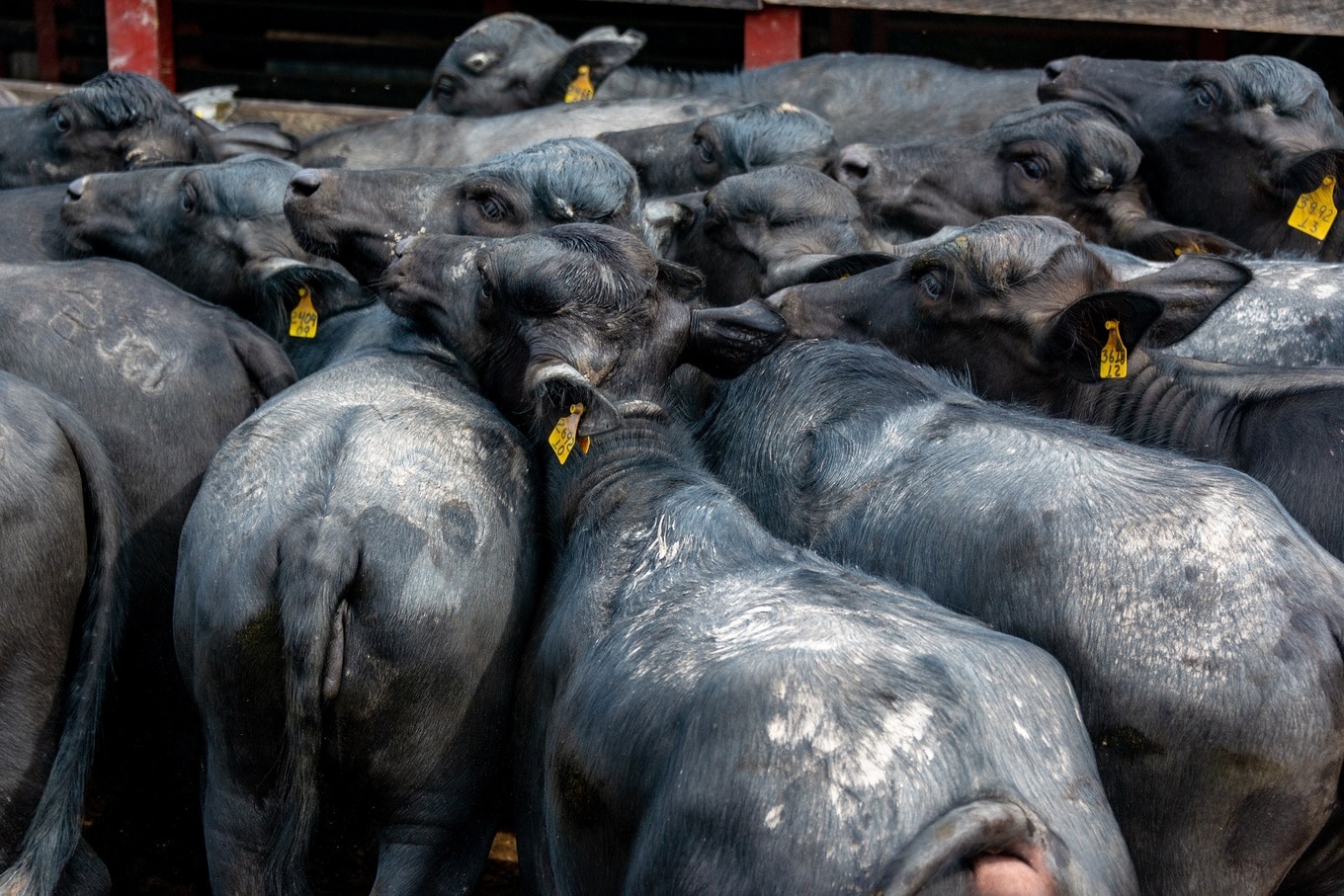In society’s shift to producing and using more eco-friendly and sustainable products, a new trend has emerged where companies are now creating carbon footprint labels to show consumers the environmental impact of the products they’re considering purchasing.
The label highlights the carbon equivalent of the greenhouse gas emissions spent in the product’s creation, transportation, use, and end of life, and is measured in grams or kilograms of carbon. This information is meant to help consumers who are aiming to minimize their ecological footprint—and perhaps even give a marketing boost to products that are more environmentally friendly than others in the same category.

Strong Roots
Vegan brand Strong Roots—which offers products in the frozen food aisles of supermarkets across the United States, United Kingdom, and Ireland—is the first plant-based frozen food brand to feature its carbon footprint score on the front of its packaging. In what it calls a “climate footprint” label, the brand is showcasing the actual amount of carbon created in the life cycle of its products in an effort to be more transparent with its customers.
Vegan food is more sustainable
The move is the company’s next step in becoming a more sustainable brand and follows its successful bid in 2020 to become a B Corp, which is a designation that a business is meeting high standards of verified performance, accountability, and transparency on factors from employee benefits and charitable giving to supply chain practices and input materials.
“The addition of our carbon footprint to labels is the next step on that [sustainability] mission. We wanted to be transparent about our impact,” Strong Roots founder and CEO Samuel Dennigan tells VegNews. “Placing climate footprint and quantities of carbon details front-of-pack is a change for us, but it has a big impact in placing sustainability front-of-mind. Sustainability is at the forefront of all of our, and our consumers and customers’ actions and conversations, and we’ll always continue to make conscious efforts to provide environmentally responsible, positive food choices.”
The impact of animal agriculture
In recent years, consumers have become more aware of the impact of their food choices, and particularly about how much goes into raising the 80 billion animals raised for food products worldwide each year—from growing and transporting their feed, clearing forests to house them, transporting the animals to slaughterhouses, and transporting their meat, dairy, or eggs to grocery stores.

According to a study published in scientific journal Nature Food last year, meat production is responsible for 57 percent of the food industry’s greenhouse gas emissions, twice as much as growing and processing plants for food. The use of cows, pigs, chickens, and other animals for food, as well as growing plants used to feed farmed animals bound for slaughter, is responsible for the vast majority of all food production emissions, the research found.
“The meat and dairy industries are some of the largest contributors to carbon emissions globally, and we wanted to challenge that by creating products that had low impact on the environment but still tasted great,” Dennigan says.
One of the benefits of plant-based alternatives to animal-based products is that they have a lower carbon footprint. According to an analysis released last year by London-based sustainability firm Thrust Carbon, seitan (a wheat-based vegan meat alternative) has a carbon footprint that is 130 times lower than beef. Compiled on behalf of the United Kingdom’s leading seitan producer LoveSeitan, the analysis showed that while 100 kilograms of seitan produces 46.6 kilograms of carbon dioxide equivalent (CO2e) emissions, the same amount of beef produces 6,000 kilograms of CO2e.

LoveSeitan
“Our carbon emissions per kilogram from production of our Crispy Skinny Fries in the UK is less than that of a bottle of beer,” Dennigan says. “We’re proud of our scores and the limited impact we have on the environment.”
Carbon footprint label helps consumers make better choices
But will highlighting a vegan product’s carbon footprint motivate consumers to buy vegan food instead of animal-based products? Dennigan thinks so: “Climate footprint labels on packaging empower consumer choice to make better, more sustainable food decisions. We always want to help educate shoppers to make smarter choices for themselves and the planet, and carbon labeling shines an extra light on the benefits of plant-based options.”

Strong Roots
Ultimately, Strong Roots believes that it is up to the food industry producers to make positive changes to save our planet. And for plant-based brands to win over consumers, environmental consciousness may be just as important as price and taste.
“We truly believe that the food system is broken and that it is up to us as food producers to fix that,” Dennigan says. “Our hope is to share knowledge and start conversations that shift consumers towards more environmentally conscious food options. Taste and price are still as important as ever—that’s why we also focus on making sure our products taste great and are of value—but carbon footprint labeling is key in educating shoppers to take that extra step.”
For the latest vegan news, read:
JUMP TO ... Latest News | Recipes | Guides | Health | Subscribe









